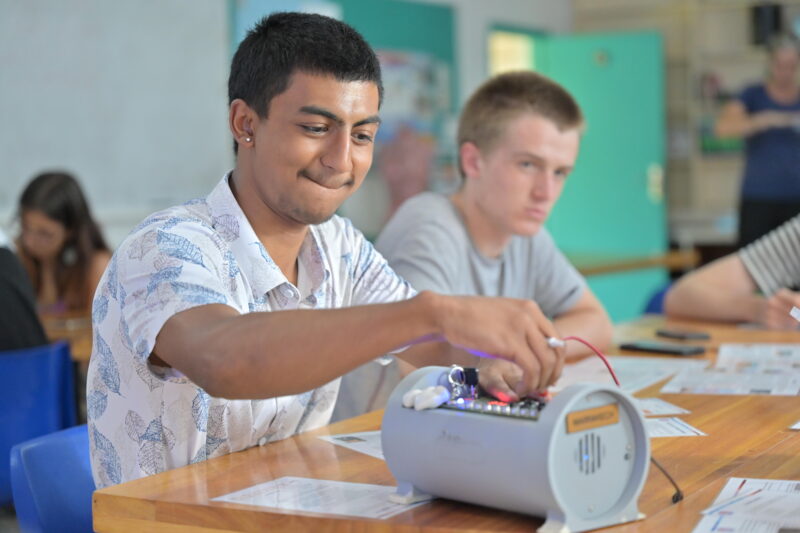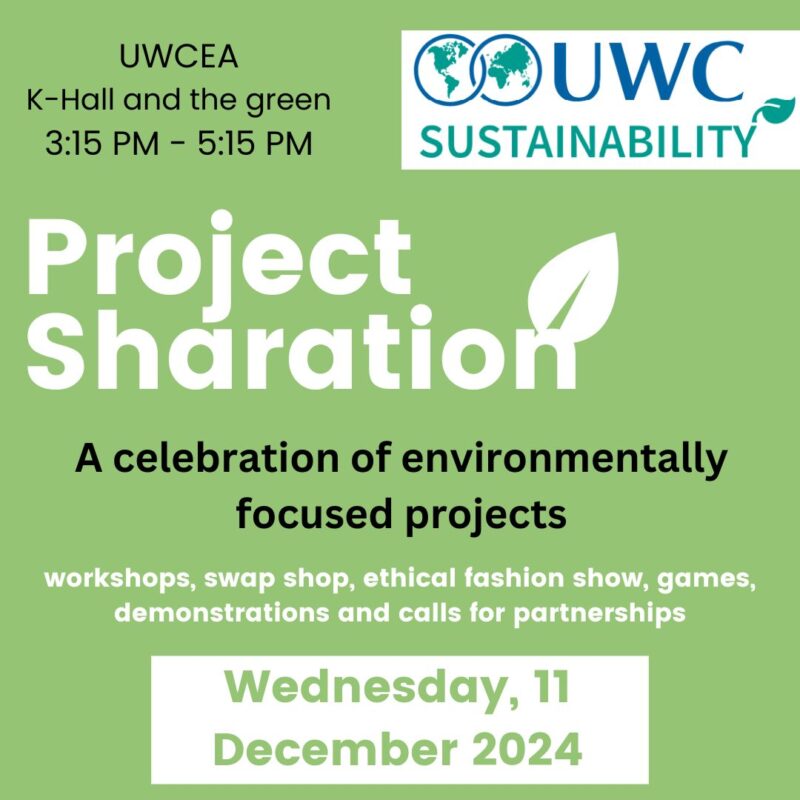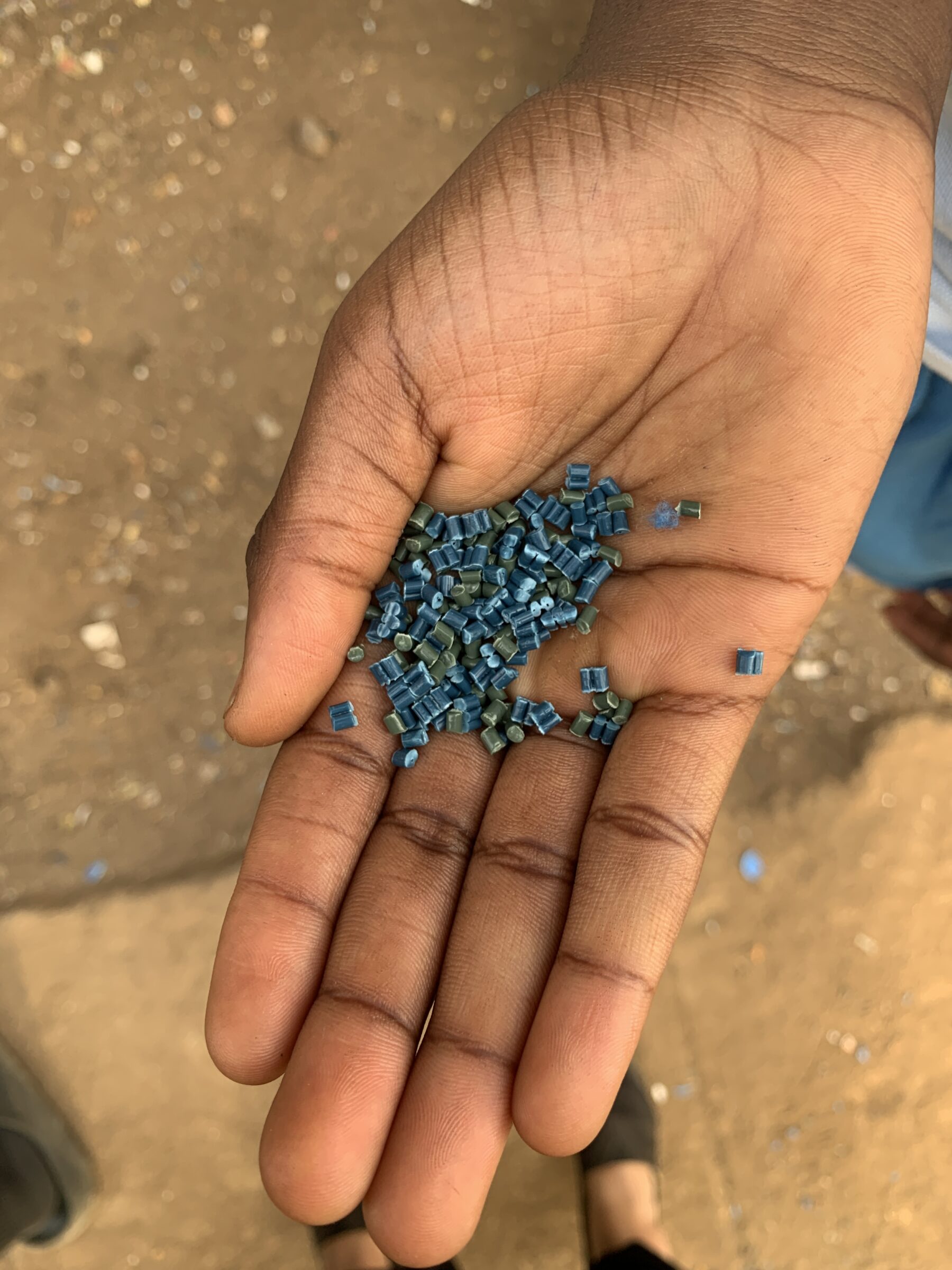
Following Our Recycling – Addressing Solid Waste Management
Details
Members of the sustainability committee and a MYP environmental service member follow their community recycling to its product end.
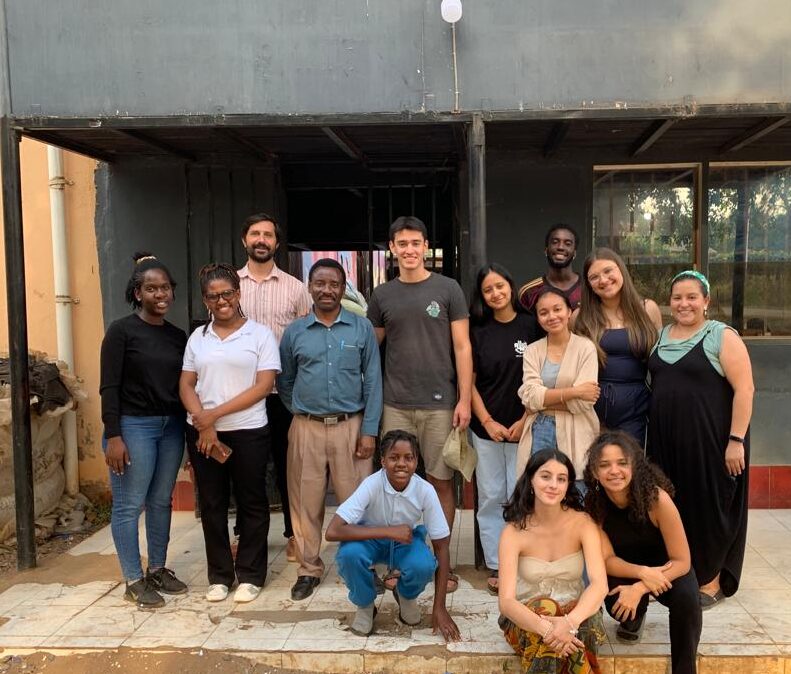
Some of our dedicated committee members with plant manager Mr. Urio. Left to right: Ms. Irene Assey (teacher), Nora Malisa, Mr. Will Taylor, Mr. Urio, Amador Abiuso, Atu Mwasongwe, Aayusha Bohara, Belinda Monteiro, Arthur Kikomeko, Jovana Arsenovic, Clara Rodríguez, Sharon Bowyer, Ms. Jamie Wood Photo Credit: Ms. Mika Pejovic
On September 30th, 2024, members of the United World College East Africa (UWCEA), Moshi campus’s sustainability committee and M1 environmental champion Atu joined our dedicated driver, Mr. Elisha for his weekly run to the local recycling plant. Mr. Urio, the plant manager was excited to take our dedicated sustainability advocates on a tour of the unique facility. This was both an effort of an eye opening nature and community outreach.
The partnership was established as part of the community recycling program hosted by the UWCEA, Moshi campus and was reconnected with in 2023. The recycling point is managed by the many environmental projects on campus collaboratively with the leadership of the sustainability committee and sustainability coordinator.
Although our food waste breaks down thanks to the campus composting program, rigid plastics, clean paper and glass are taken on a needs be basis, usually weekly, to the plant. There they are unloaded by dedicated staff from UWCEA in collaboration with the plant’s staff. The busy and dedicated staff operate the plant 24 hours a day.
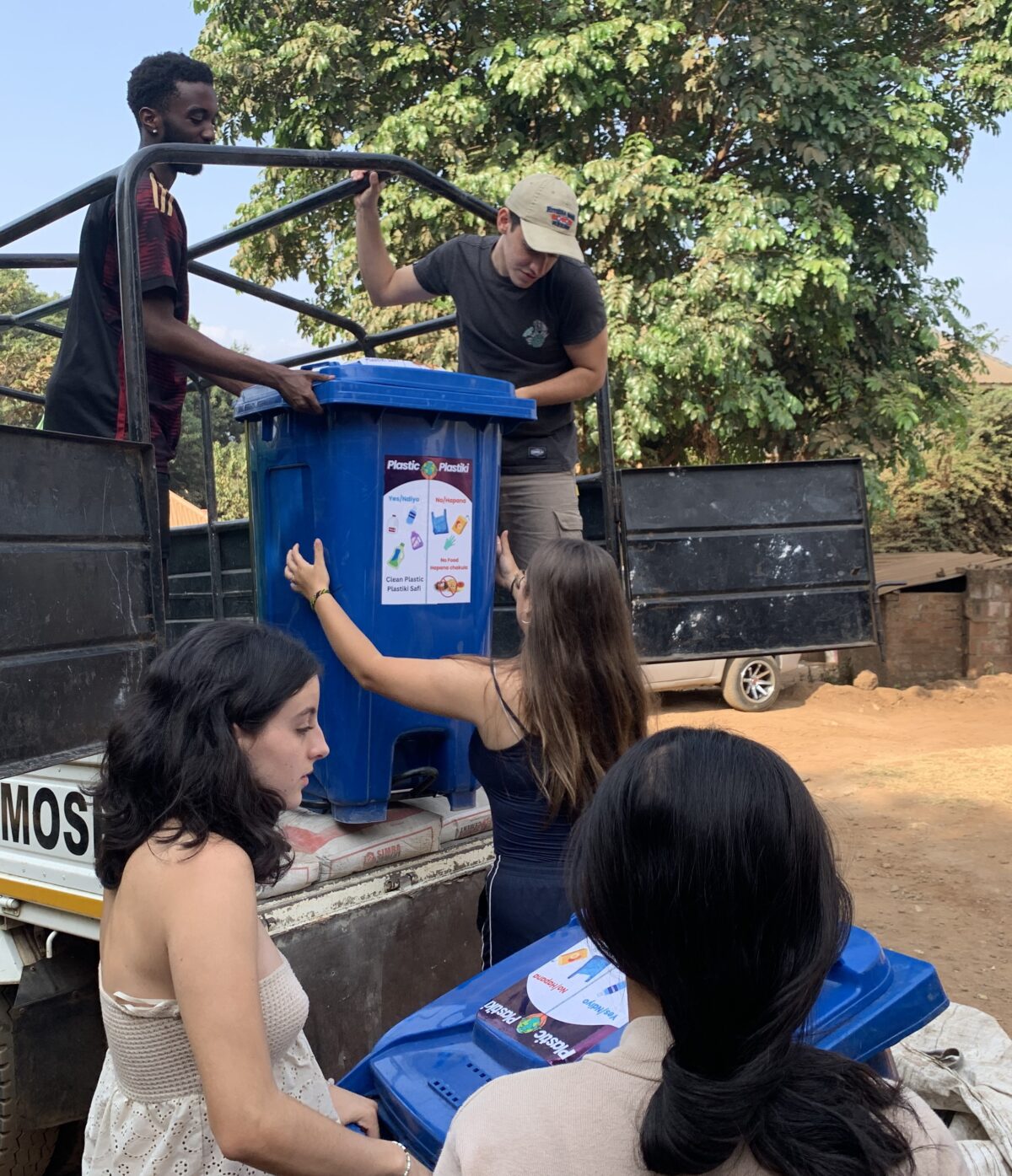
Diploma students form the sustainability committee unload community recycling.
Circular Economy – plastic waste to product material
Plastics are colour sorted and put through a cutting machine, which breaks up bottles and other rigid plastics as well as labels into small pieces. These are then collected and sent through a separating process, where labels and rigid plastic are separated via buoyancy. Dependent upon an order placed, the remnants are then put through an extrusion molding machine, where they are pressed into long lines and cooled in a waterbath on their way to a cutting machine. This final step leaves the plant with pellets which can be used to produce recycled materials (see photo right). Typically these pellets are ordered for the production of brooms, dustbins, waste bins and several other recycled plastic products.
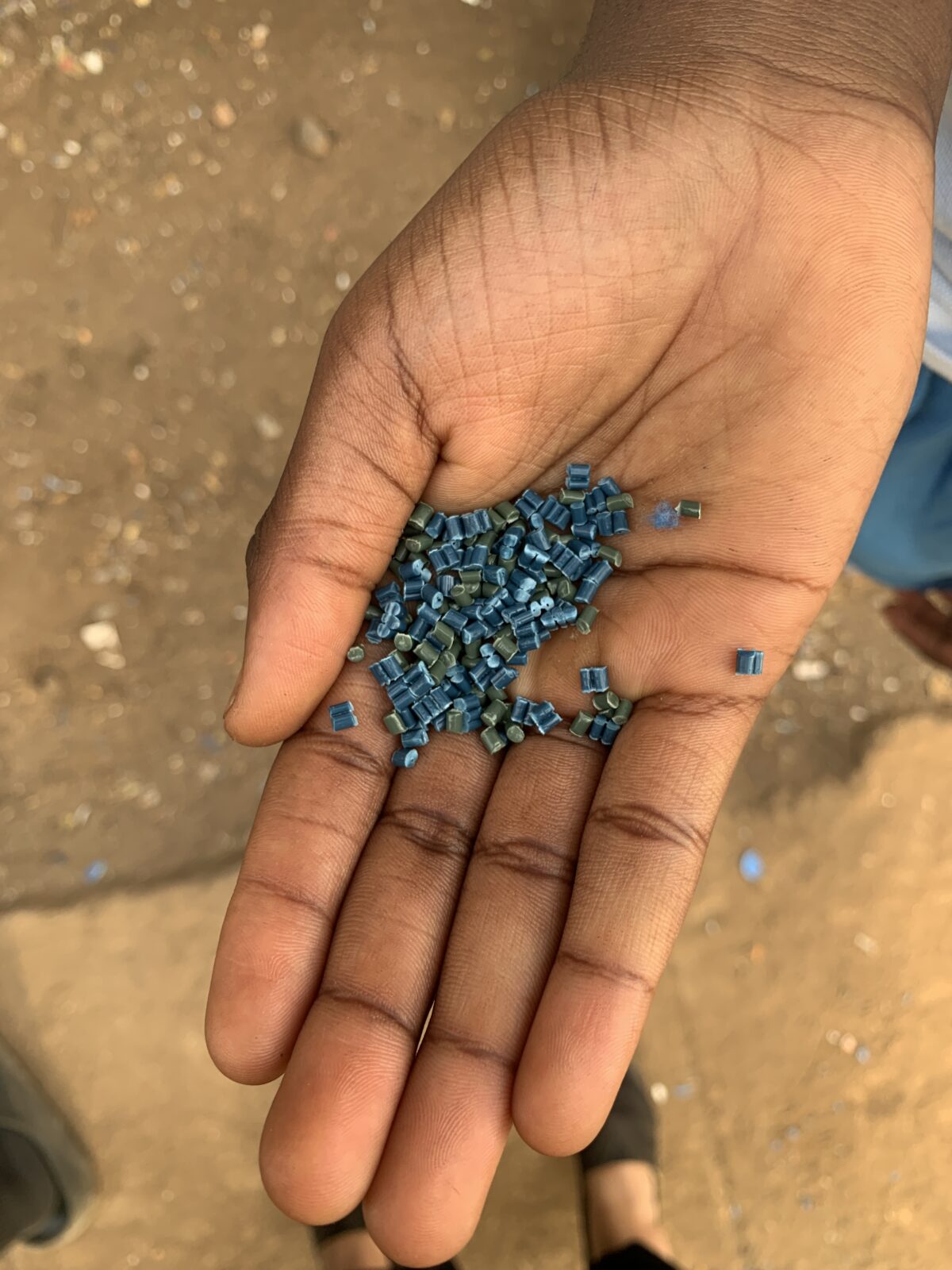
Recycled plastic pellets held by Atu
An opportunity and an eye opener
Students do not typically see factories, particularly along the low ends of Mount Kilimanjaro. This plant was selected by previous UWCEA environmental champions in 2022 and the partnership was made through the parent community and students themselves. In Moshi, there is no formal public recycling option; waste is typically separated through dedicated informal workers. The plant provides a financial incentive, paying collectors by the kilo. Formalizing the process to a community level is a constant balancing act with an aim towards growth, albeit slowly. With many thanks to dedicated champions like Mr. Urio and his team, we are seeing incremental improvements in waste management.
Challenges and progress
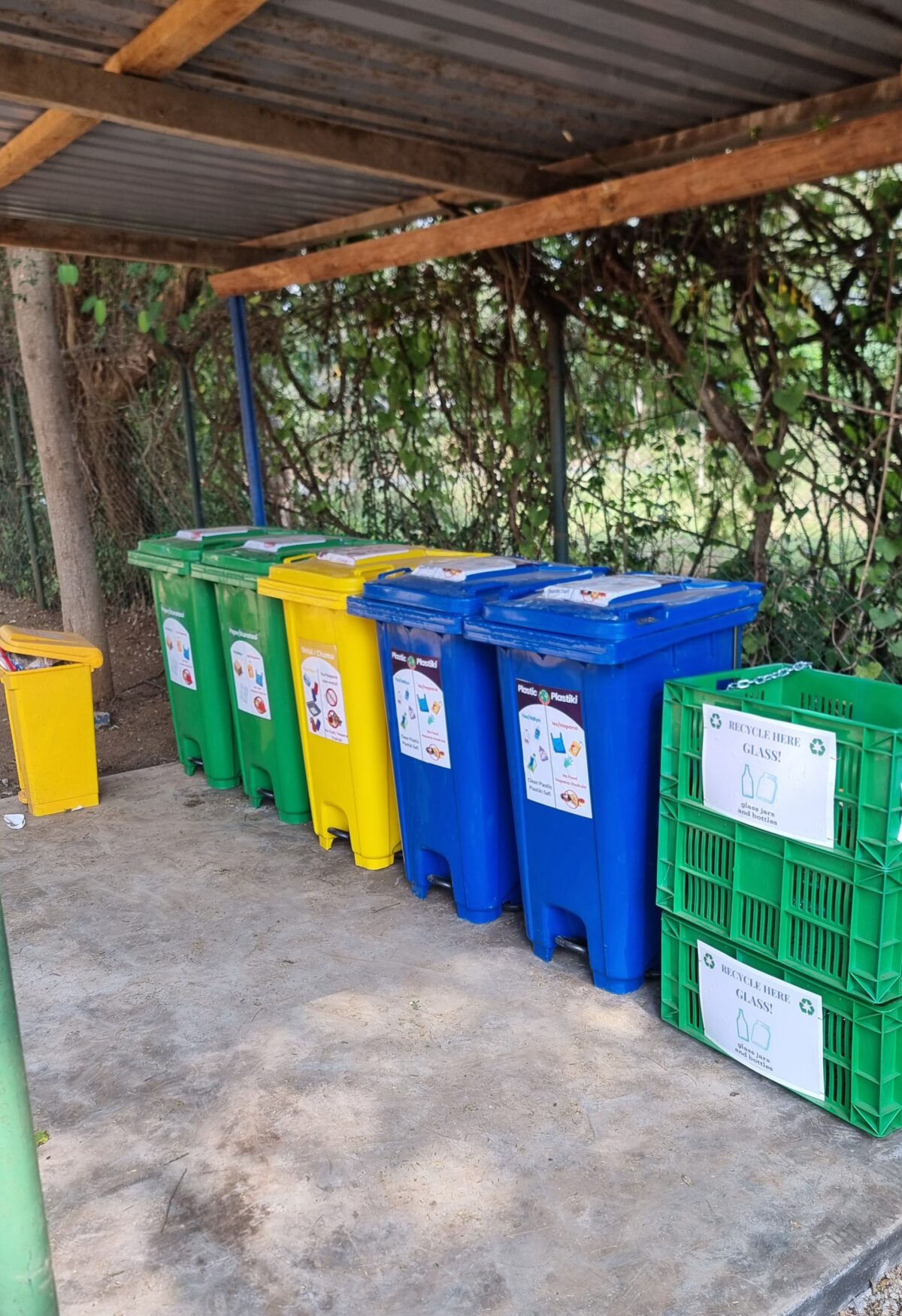
Community plastics, glass, paper and metal recycling on campus
For some of the students in the committee, UWCEA is their first exposure to waste separation, while others find the gap between their home country’s standards and those of East Africa drastically far apart. According to an AWE report from September 2024, 41% of global households dispose of waste in dangerous, uncontrolled ways, including open burning. Further to this in Tanzania, according to the deputy permanent secretary in the Vice President’s Office, Joseph Sokoine, less than 30% of domestic waste in urban areas is disposed at a municipal disposal site as of 2021. The easy solution for many is open burning.
Local practices for waste separation often take a back seat to efficiency; if you burn it then it is gone. Metal is less of a challenge, as circularity of this material found in most products is second nature here, not to mention the low carbon footprint carried by a local pattern of life. Formalizing the process to a community level requires constant maintenance and we are moving closer to more formal anti-burning campaigns beyond our school walls, a major contributor to health and ecological issues.
Maybe it is a small step in the grand avalanche of social and environmental challenges we face, but many students and community members take each step with pride and patience.

